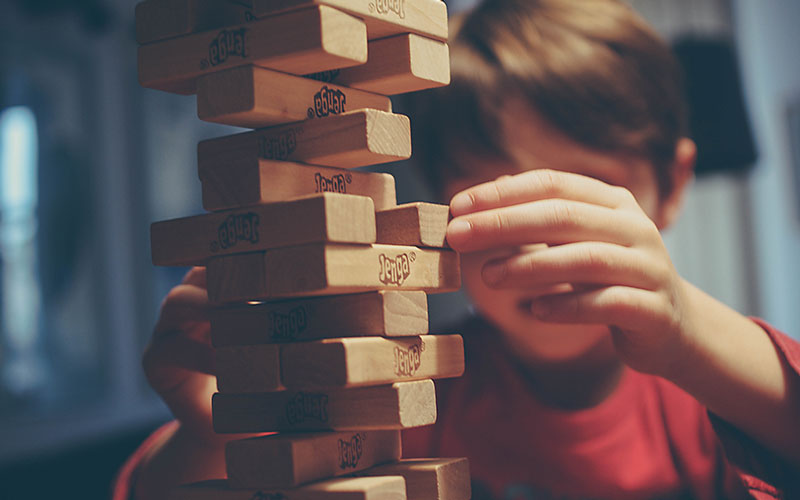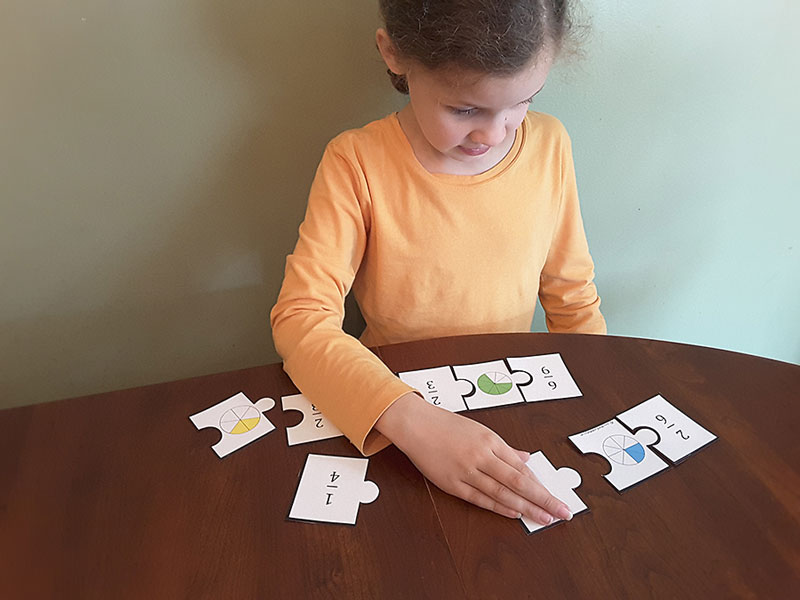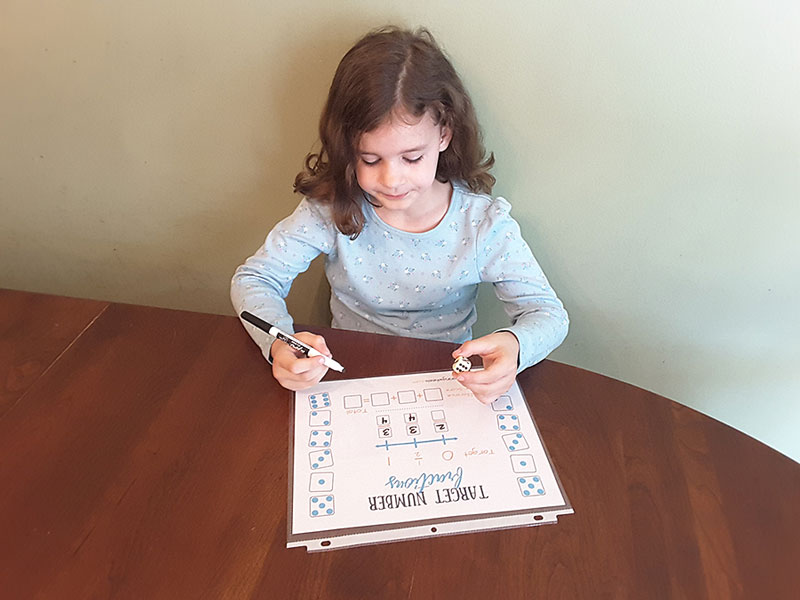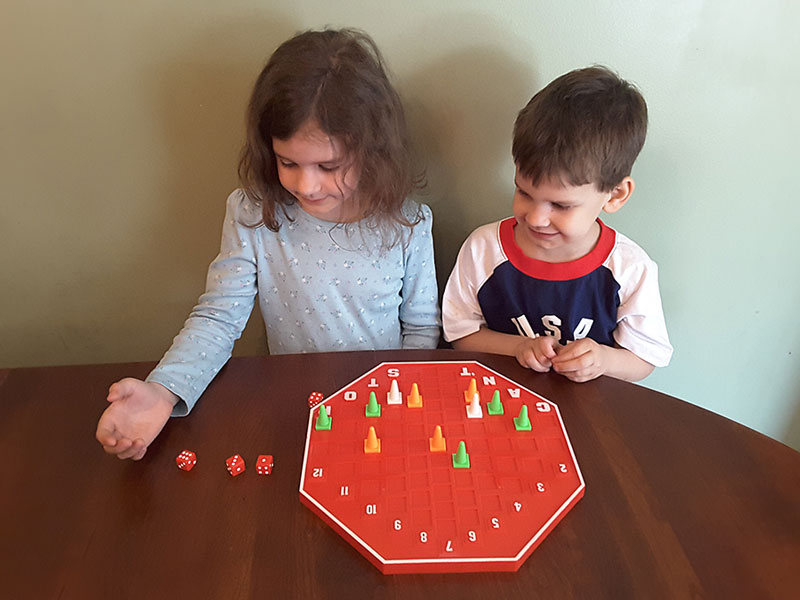
Most homeschool moms have discovered the joys and benefits of incorporating games into the homeschool day. But how do you know which games to use and how to use them effectively?

Sometimes the first step to a good strategy is just understanding the options and setting reasonable expectations. Let’s take a look at games in three categories.
Skill-Targeted Games
What They Are
The easiest type of game to use with your homeschool lessons are basically like a three-dimensional, hands-on replacement for worksheets. Instead of writing down answers to math problems on paper, or using a pencil to draw a line between states and their capitals, you can practice matching questions and answers through a game which may be just as amusing as situs slot online!
There are a huge variety of standard game formats that can be easily adapted to almost any educational application …
- Candy Land type board games (draw cards and/or answer questions to advance)
- Matching/Memory games
- Dominoes (similar to a matching format)
- Old Maid or Go Fish-type card games
- I Have … Who Has …
- Hangman with clues and answers
- Around the World competitions
- Puzzles (matching pairs of pieces)
- And there are lots of others!
Why They Work
Once your kids know how a game format works, you can use it for any subject you want to practice or review. Most kids would far rather play a game than fill in blanks on a worksheet. And, best of all, there are no papers to grade at the end!
Games engage more of the senses and involve more interpersonal interaction than your typical worksheet, making learning “stick” even better. You can directly target the specific objective you want to assess and easily check for fluency and mastery.
Game creation is simple enough that you can make your own. Or, skip the project and find a huge variety of options online, like the Latin games created by our own Pam Barnhill or the games Math Geek Mama, Bethany Lake designs!
What Won’t Work
Knowledge-based games like these can be more challenging to play with a wide range of players. Don’t expect your teens to want to join in with the younger kids just for fun. And little people who haven’t mastered the information will be at a disadvantage.
The main mechanic in these games is the review of knowledge. There often isn’t much strategy involved, so the challenge is limited to the difficulty level of the information being reviewed. Kids may not necessarily choose to play these during free play time (though sometimes they’ll surprise you!).
Concept-Based Strategy Games
What They Are
If the first category of games is like three-dimensional worksheets, think of these games as three-dimensional word problems. The main mechanic of the game is based on not just knowing information or answers, but putting that knowledge to use creating a playing strategy.
For example, instead of matching cards with equivalent fractions, players might use numbers rolled on a die to create a fraction as close to one-half as they can. Students still need to have an understanding of equivalent fractions, and that knowledge is still being assessed, but the knowledge is the basis of the strategy itself.
Why They Work
These games involve both knowledge and application of knowledge. Because of the strategy involved, they provide an additional challenge beyond answering questions or matching information.
The strategy involved also makes them more appealing to a wider range of players. Even if the knowledge base for the game doesn’t provide a challenge for older players, the strategy element may.
What Won’t Work
These types of games are more difficult to find or create. One format cannot necessarily be cross-applied to a variety of topics. This model works best with math skills and is difficult to utilize in other subjects. The combination of knowledge and strategy make these games better suited for review and fluency-building than for the first-time introduction of a new concept.
Best-Selling Board Games
What They Are
Best-selling board games are often produced by professional game designers and published by big game-publishing houses. They include quality components and thorough instructions.
It’s no easy task to create a well-balanced, play-tested, straight-up fun board game. These games are designed primarily to be enjoyable to play.
Why They Work
The reason these games work is simple: they are fun to play! Best-selling board games are best-selling because people purchase them for their entertainment value. These are the kinds of games you could add to your family game night or play at a birthday party, so playing them during school feels like ice cream for breakfast!
Even though they don’t feel “educational” your children will be learning and applying knowledge all over the place. Best-selling board games strengthen and engage verbal, qualitative, and visual-spatial intelligence. They definitely count as “real life learning”.
What Won’t Work
Since these games are designed primary for fun, it may be harder to narrow down and assess a particular skill or topic. While they may offer many educational opportunities, it might be challenging to figure out how they count as a one-for-one replacement of a particular worksheet or math assignment. (This isn’t always the case, however, as my fourth child learned all of her addition facts solely from playing Can’t Stop, a well-loved classic by a master designer!)
- The Ultimate Guide to Relaxed Poetry in Your Morning Time - April 27, 2020
- Holiday Time when Your Family is Anti-Homeschool - November 15, 2018
- When Skill Learning Gets Messy - October 11, 2018



